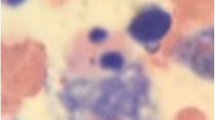Summary
Lysinuric protein intolerance (LPI) is a disorder of dibasic amino acid transport secondary to mutation of the SLC7A7 gene characterized by renal failure, pulmonary alveolar proteinosis, lupus-like autoimmune symptoms and usually increased plasma citrulline. In order to better understand the underlying mechanism, we studied the plasma and urinary nitrite/nitrate (NO2 -/NO3 -) concentrations in three LPI patients and the in vitro NO2 - production in cultured fibroblasts. Our data show that NO3 - levels are increased in the plasma of patients with LPI. Similarly, NO2 - release in the medium of cultured fibroblasts was increased. On this basis, we hypothesize that some of the poorly understood clinical signs of LPI could be related to the activation of the NO-citrulline pathway.
Similar content being viewed by others
Author information
Authors and Affiliations
Corresponding author
Rights and permissions
About this article
Cite this article
Mannucci, L., Emma, F., Markert, M. et al. Increased NO production in lysinuric protein intolerance. J Inherit Metab Dis 28, 123–129 (2005). https://doi.org/10.1007/s10545-005-5954-x
Received:
Accepted:
Issue Date:
DOI: https://doi.org/10.1007/s10545-005-5954-x




